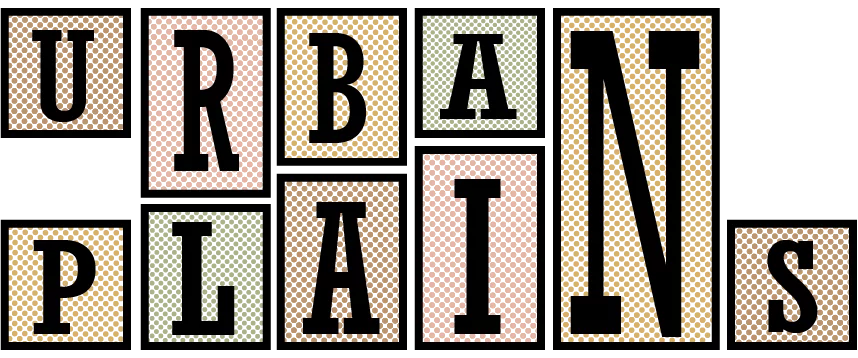The workers who empty your bins prefer “senior refuse collectors”
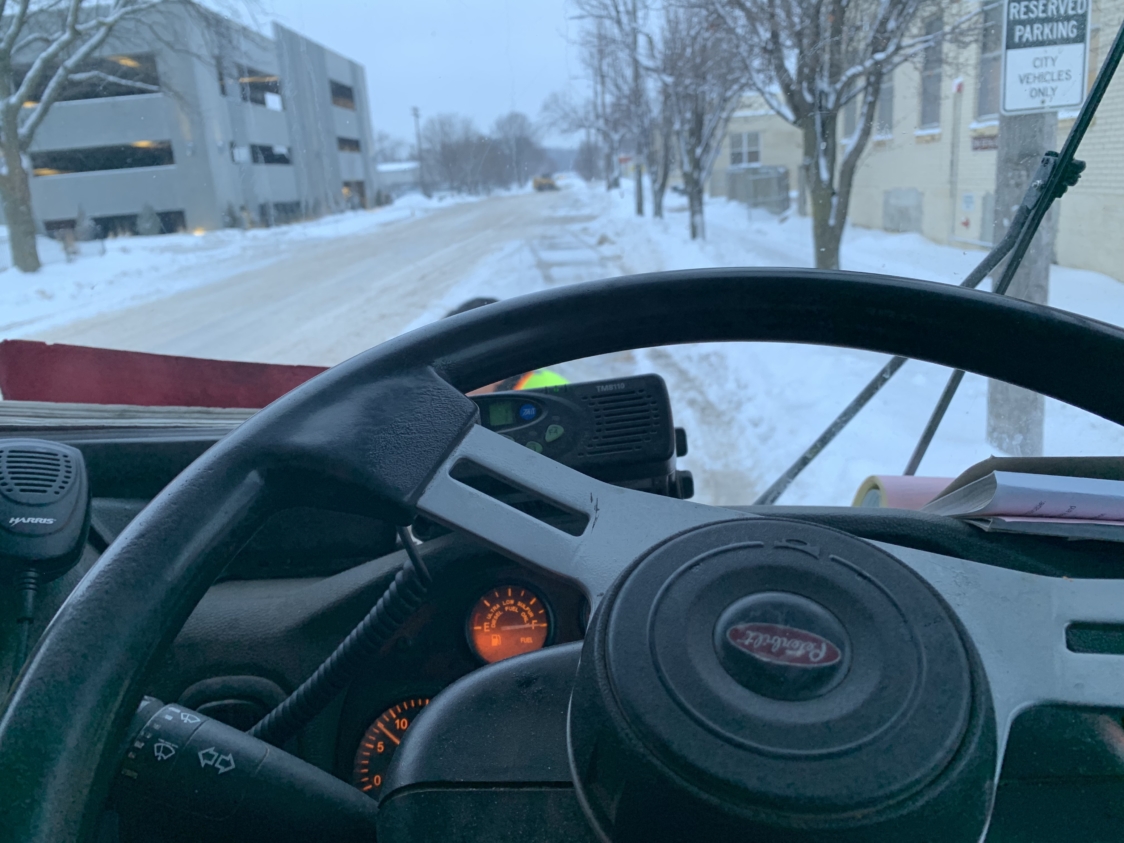
As the snow continues to fall, David Schervish wraps chains around the oversized tires on his orange truck. The chains are supposed to prevent the garbage truck from slipping and sliding down the unpaved streets of Des Moines, Iowa. He starts his route before the sun rises and finishes before the kids are let out of school. He’s a senior refuse collector, but many people know him as a garbageman.
“So, everybody’s waking up. They got snow in their driveway, I got to bring their garbage out. There’s snow everywhere. They’ve got to get their kids to school and the trucks haven’t had a chance to get into the neighborhoods yet. So, it’s all pretty hectic,” says Schervish.
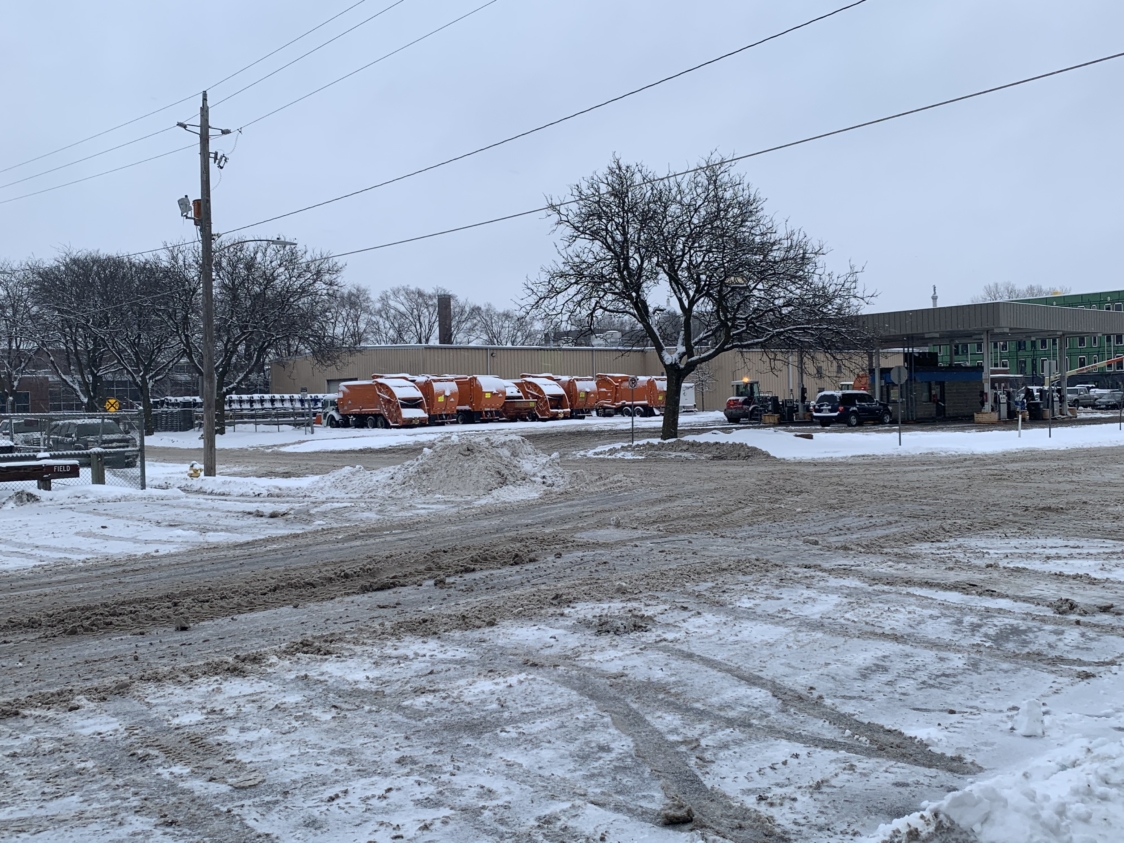
The United States generates about 254 million tons of trash, recycling and compost a year, according to a 2016 Environmental Protection Agency report. That 254 million tons of trash, recycling and compost is collected and disposed of by 115,000 individuals employed throughout the nation, 300 of whom are employed by the Des Moines Department of Public Works. After the recession in 2008, Schervish was offered a job in the Solid Waste Division of Public Works as an opportunity to provide for his family while providing a public service.
Many of us are not aware of the hard work that goes behind a single collection, and Schervish will stop at 800 properties today.
“So, we get up, we have to be there at 7:00, and we hit it,” says Schervish. “We, the division I’m in, run pretty hard because we have to get it done no matter what…. There’s some things you can put off…. But for the solid waste division, it has to get done every day.”
Not only does it have to be done every day, but it also needs to be done safely. Senior refuse collectors drive in the right side of their vehicle on the right side of the road, which looks strange and is awkward for drivers. Schervish took four months to learn how to drive a garbage truck. As he drives away, the truck moves slowly and purposefully. He pauses for a moment to demonstrate the hydraulic arm that grabs the trash bins. The potential dangers are evident.
“The longer we’re out there, the more danger we’re in and the public is in,” says Schervish. “But the quicker we can get it done and get off the streets is best.”
Large vehicles like a garbage truck driving through neighborhoods can be dangerous while children are outside playing in their yards or in the streets. The philosophy of the solid waste division is to collect waste as quickly as possible and as safely as possible. That is why Schervish wakes up so early in the morning to put the chains on his wheels.
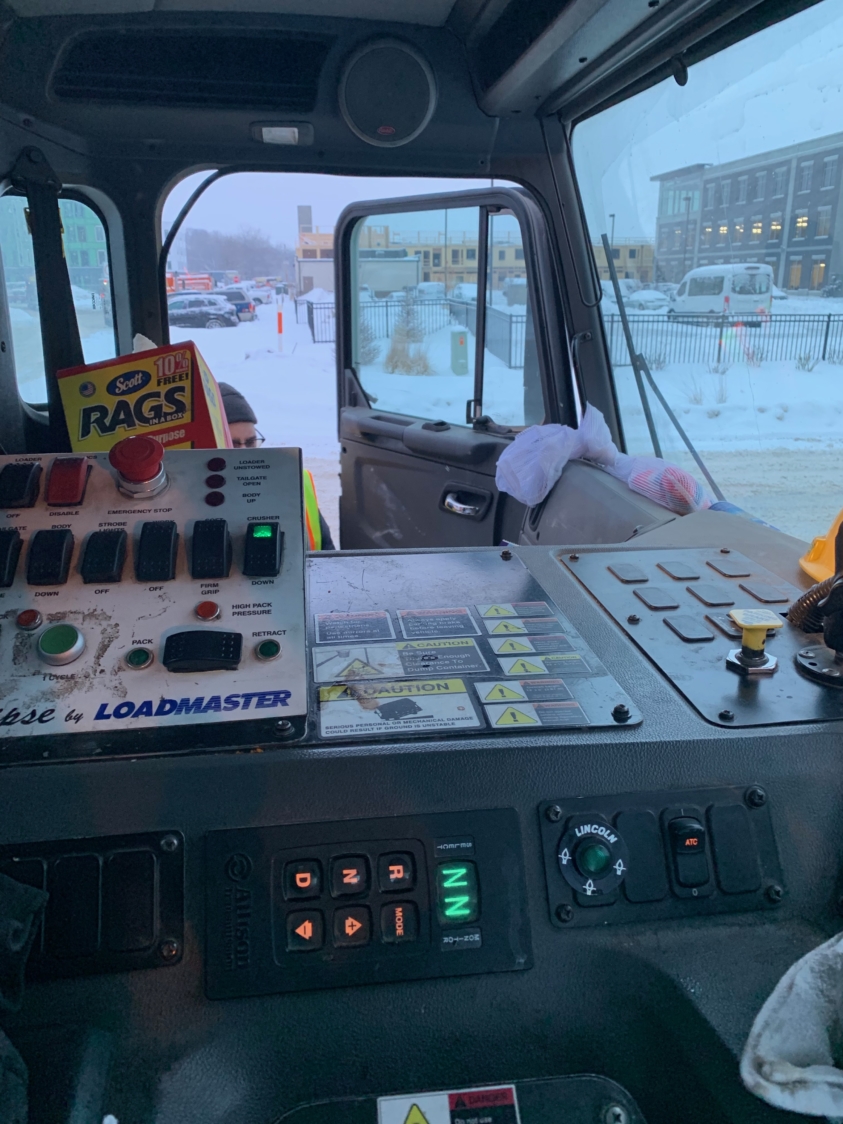
Photo by: Ayana Anderson 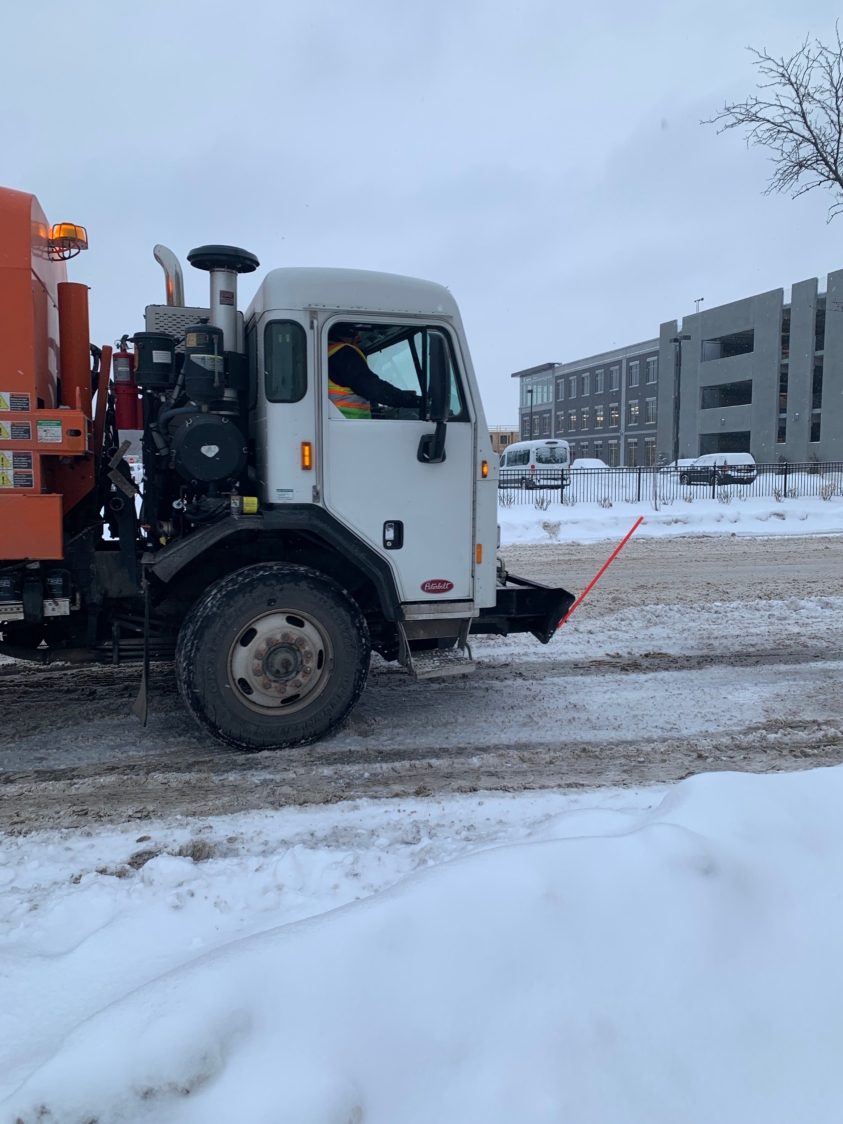
Photo by: Ayana Anderson
The men who make up the Solid Waste Division not only collect trash, but they also have a personal relationship with most of the households that they serve.
“We like to think of the population and the people we serve as our clients. If we have that mentality, you want to take care of them,” says Schervish.
The Des Moines Public Works Department provides a service to the community that helps those who cannot take out their trash. A resident who is either injured or unable to take out their own trash can call the department and refuse collectors will dispose of their trash for as long as they need.
“It’s kind of a check, all these guys know everyone on their routes,” says Schervish. “So, if one week they don’t have anything in there, and then the next week, we’ll give a courtesy call to see if they are all right. The Public Works Department is checking in on citizens.”
At the thought of returning to the streets to help his clients, Schervish gets excited. He hops into his truck, pulls away from the curb, and drives off. Our Senior Refuse Collectors are a helping hand in our communities providing so many services that we often take for granted.
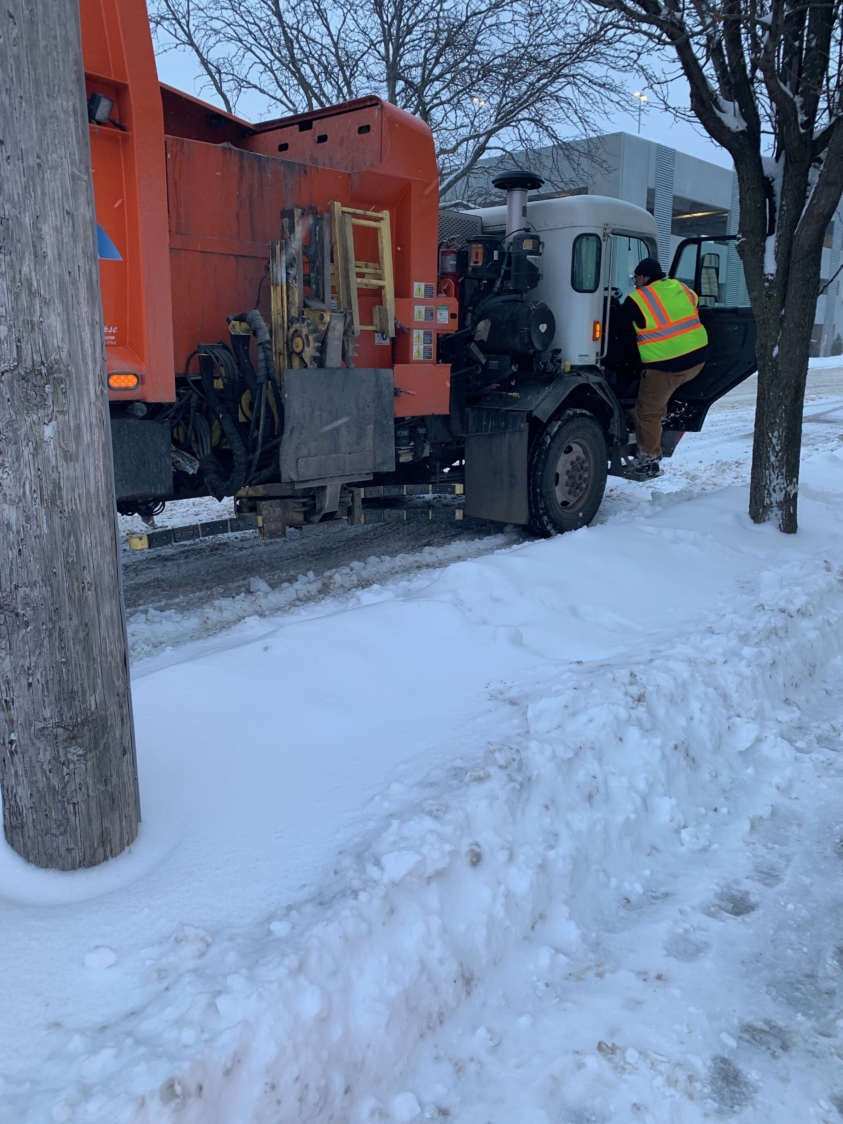
Photos by: Ayana Anderson
